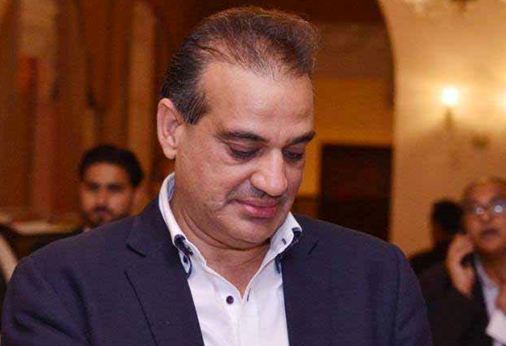Comment
Ansar M Bhatti
Pakistan’s political landscape is currently experiencing an unprecedented level of cruelty. The nation has a history marred by political victimization and witch-hunts, particularly during crucial voting periods. Practices such as mud-slinging, horse trading, and bashing have long been ingrained in Pakistani politics. However, the current situation has taken a darker turn.
A prominent political party has been effectively removed from the political stage, beginning with the imprisonment of its key leadership and culminating in the confiscation of its election symbol. The story doesn’t end there. The party’s founding leader, Imran Khan, has been handed a lengthy jail sentence. If relief is not granted by the higher judiciary, he faces spending the remainder of his life behind bars.
This situation raises concerns about sheer injustice, as many are convinced that the prosecution and punishment of the PTI leader do not align with legal obligations. The need for a fair and just political environment in Pakistan has never been more pressing.
It is deeply distressing to note the unfortunate incident that occurred on January 31, where the PTI candidate from Bajaur Agency lost life due to an act of violence by unknown assailants. This tragic event highlights a disturbing trend where individuals resort to physical harm when unable to achieve their goals through political means.
In the past, similar incidents occurred, but they often went unnoticed due to the lack of a vibrant media landscape in Pakistan. During that era, the sole source of information was PTV, the only television channel in the country. Consequently, these occurrences failed to capture public attention. However, with the evolution of media, especially the rise of mainstream and social media, the situation has undergone a significant transformation.
The advent of various television channels, news platforms, and social media channels has enabled people to stay informed about events that may have otherwise been concealed. This heightened visibility has shed light on the experiences of individuals and the actions of political leaders in the past.
The accessibility and widespread reach of social media, in particular, have played a pivotal role in amplifying voices and bringing attention to issues that were once overlooked. As a result, the public is now more aware of the historical challenges and events that have shaped their lives and political landscape. The evolving media landscape has empowered individuals to engage with and scrutinize their leaders, judiciary and other institutions fostering a more informed and vigilant citizenry.
One encouraging aspect of the current situation is the assurance that the election is scheduled to proceed on February 8. However, it’s essential to acknowledge that a few voices express concerns about unforeseen events potentially disrupting the process before February 8. Despite various challenges and strategic maneuvers, it’s noteworthy that the popularity of the PTI remains resilient, indicating a steadfast support base that has not wavered despite all odds. And that is exactly where the shoe actually pinches. The Establishment, it seems, has rarely faced a challenge as formidable as the one posed by the PTI and Imran Khan. Unlike previous instances, where efforts to tame a political party or leader may not have required maximum exertion, the current situation demands an unprecedented level of diligence to contain the influence and momentum of the PTI and its leadership.
Mainly three factors appear to have compelled influential individuals to pursue legal action against Imran Khan and ensure a resolution to the cases. These key elements played a pivotal role in driving the legal proceedings to a conclusive end:
Firstly, Imran Khan’s recent article in The Economist, where he openly criticized the Establishment and assigned joint responsibility to them and the USA for his removal, likely fueled a sense of urgency among his opponents. This may have prompted them to expedite the closure of his political chapter before he could garner further support.
Secondly, the powers-that-be may have sought to conclude legal proceedings against him before the installation of a new political government. Dealing with an elected government might pose a more challenging task compared to a caretaker government, enabling them to exert influence more effectively.
Thirdly, a strategic assessment by influential figures may have led to the conclusion that imposing a sentence prior to the upcoming elections could dent Imran Khan’s popularity. This potential decline in support might discourage his followers, possibly leading them to abstain from participating in the elections on February 8.
Whether these gimmicks will prove effective remains to be seen; nonetheless, the incessant events have significantly eroded the credibility of the upcoming elections. Predicting the sustainability of the new government arising from these proceedings is challenging. If it falters, the potential outcomes include another election or an internal change, either of which would further jeopardize the fragile state of democracy and burden the masses. Unfortunately, even after 76 years of existence, Pakistan finds itself in a state of uncertainty. There appears to be no savior on the horizon capable of pulling the country out of its current predicament.
In summary, the current situation has arisen due to the active involvement of politicians who, rather than fostering collaboration, have willingly served as instruments of discord against each other. During Imran Khan’s tenure, he displayed reluctance to engage with parties such as PML N or PPP, and now, the tables have turned, with him seemingly marginalized by these very parties. This detrimental trend needs to cease if the nation is to progress. It is imperative for politicians to prioritize unity over division, fostering a spirit of cooperation for the greater good of the country’s advancement.











